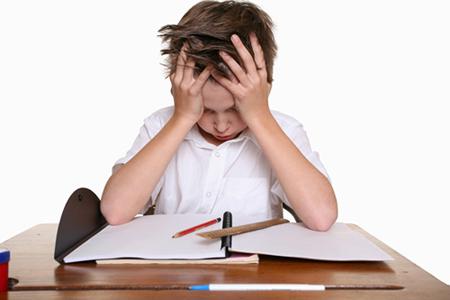You are here
After concussions, kids face persistent difficulties with school
May 18,2015 - Last updated at May 18,2015
Los Angeles Times (TNS)
New research finds that after sustaining a mild traumatic brain injury, nearly 9 in 10 teens who have ongoing concussion symptoms also have academic problems related to headaches, fatigue and difficulty concentrating. And more than three-quarters of those who have yet to recover fully after four weeks report a decline in such academic skills as note taking, studying and completing homework assignments.
The new study, published Monday online by the journal Paediatrics, makes clear that while many teens will have few concussion symptoms past two to three weeks, the consequences of some brain injuries can extend well beyond the playing field and can persistently degrade an adolescent’s academic performance in and outside the classroom.
Among 349 students ages 5 to 18 who had suffered a concussion, 240 continued to experience physical and cognitive symptoms of brain injury, including headaches, dizziness, light sensitivity and problems of mood and concentration when they were assessed by researchers within four weeks of their injury.
In that group, those with the highest academic demands — generally students in middle and high school — were most likely to report persistent symptoms of concussion along with difficulties concentrating and keeping up with schoolwork. Math was most frequently cited as the greatest academic challenge.
When parents reported mood changes in their concussed child, the likelihood of academic difficulties was higher, the study found.
As schools are under increased pressure to show continuous student improvement and to accommodate those with established learning challenges, the plight of the concussed student has frequently been overlooked, said the authors. But students coping with ongoing concussion symptoms need “targeted supports”, they wrote.
Healthcare professionals should draw up a post-concussion plan, specifying academic accommodations that should be made in light of a student’s individual symptoms.
Even among children considered to be recovering well, academic difficulties were common. In this group, 38 per cent reported that headaches, concentration problems and fatigue had interfered with their learning, and 44 per cent said that their symptoms had taken a toll on academic skills such as note-taking and homework completion.
For most with mild brain injuries, the process of recovery will take a week to three weeks. During that time, physicians have suggested a patient’s school time might be limited, homework might be curtailed and frequent breaks might be tolerated. Administrators might allow a concussed student to move between classes ahead of the noise and confusion after the bell, to waive or reschedule tests, and to let a student eat lunch in a quiet place.
An earlier article in Paediatrics offered checklists that parents, physicians and schools can use to identify symptoms that are triggered by school-related activities and to track symptoms as they resolve.
Related Articles
High school and college students who get concussions may struggle more with academics than their peers who get other types of sports injurie
The lives of teens were disrupted with some having lost family members. Others live in fear for themselves and their family members- and many teens were victims of domestic abuse.
It was just after spring break when two of my students broke down in tears, overwhelmed by the sheer volume of homework they had to submit that day.














